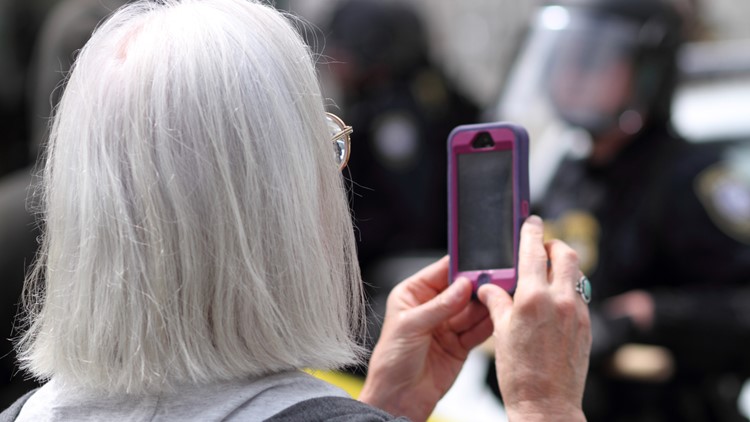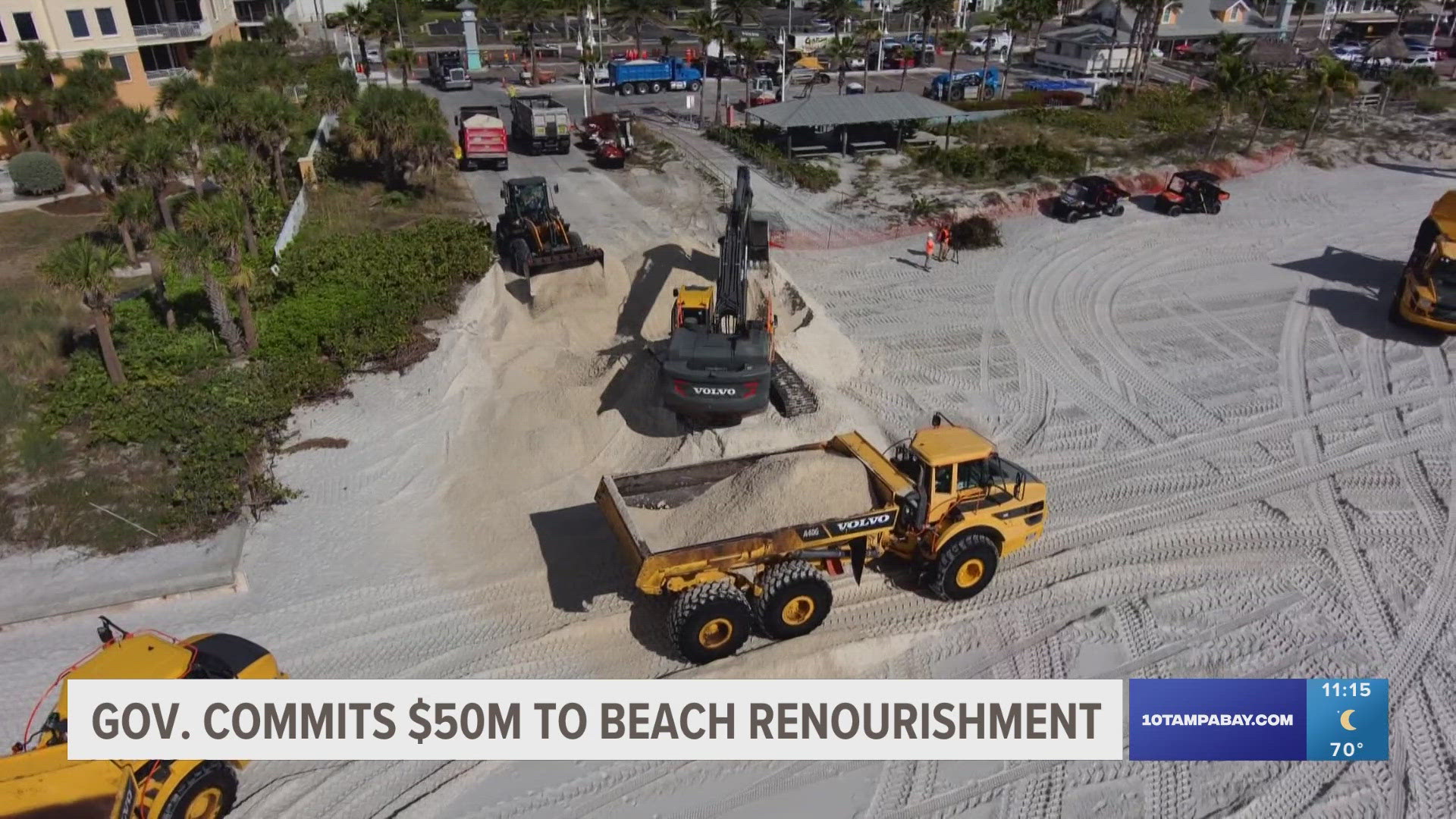BOYNTON BEACH, Fla. — Recording the police during interactions and arrests has become more common over the years and is now a central element of the movement for racial justice and policing reforms.
But can it also land you behind bars? Well, based on a divided appeals court opinion, in Florida, the answer can be "yes."
The Florida 4th District Court of Appeals ruling on Wednesday upheld a lower court's decision that there was probable cause for the 2009 arrest of a Boynton Beach woman who recorded police outside a movie theater.
Court documents filed show the judges viewed the nearly 11-minute video of the incident before making their ruling.
The incident:
At the time, Sharron Tasha Ford was called out to the theater because police and shopping center security say her son was caught sneaking in without paying.
The interaction between Ford and police officers occurred on a public sidewalk directly across from the movie theater entrance, according to court documents.
When she arrived, documents state Ford was already recording, and officers informed her that she needed permission to do so.
Ford, after being asked for identification, reportedly responded “oh, I’m recording. I just wanted to let you know that I’m recording,” according to one of the judges. The documents say that was met with an officer replying:
“Um, yeah you can. Um, may—maybe.”
Later, the video reportedly captures the officers asking on several occasions for her to stop recording, requests which the court said were ignored. All three judges also said, at one point, Ford lied about continuing to record the officers on scene.
Things began to get "heated," according to the appeals court's opinion after Ford's son told her he was "slammed" against the hood of a car by one of the officers.
From there, a back-and-forth ensued with Ford claiming she felt they were ready to “throw [her] in handcuffs" and an officer stating "it was against the law" in Florida to record the audio and video of officers while doing their job.
In the end, officers claimed her actions were interfering with their ability to investigate the teen's alleged trespassing, and Ford claimed she was "just asking questions" as a "mother and concerned parent."
Before the video ends, court documents note it cuts out on several instances before police were seen taking Ford's camera and placing her under arrest for intercepting oral communications and obstruction without violence.
No charges were ever filed.
The lawsuit:
In 2010, Ford filed a lawsuit for damages and declaratory relief under her belief she was arrested without probable cause or "any lawful basis."
The lawsuit states that Ford's arrest caused her to suffer physical and emotional distress, trauma, humiliation and a damaged reputation. The suit also claimed Ford's First and Fourth Amendment rights were breached.
The ruling:
Before the case could reach the appeals court, it had to go through several steps including, the federal and state court system.
The appeals court's job was to determine if there was "probable cause" to arrest Ford in this case. Probable cause is the belief required before an arrest that the person committed a crime.
According to Judges Melanie G. May and Judge Edward L. Artau, the officers in this situation had probable cause to arrest Ford for obstruction.
"Physical obstruction is not required to violate the statute. The plaintiff’s attempt to narrowly read the record, the statute, and the case law is flawed. A review of the recorded incident reveals the plaintiff’s approach to the officers was designed to impede what should have been a short, uneventful exchange of her son’s custody," they wrote.
"In short, she obstructed their investigation and processing of her son’s detention—a lawful execution of their duty," May and Artau added.
They also determined that since probable cause existed for one of her charges, there was "no need to address" probable cause of the alleged wiretap statute charge.
But the final decision wasn't a sweeping opinion. Judge Martha C. Warner also published a lengthy dissent of the court's majority opinion.
“This appeal arises out of a familiar scene on the news at night: the videotaping of the police during an arrest," she wrote.
Warner finds that the officers had no reasonable expectation of privacy and that Ford did not physically obstruct the officers but only asked them questions.
In response to the ruling, the City of Boynton Beach and its police department issued the following statement:
"The City of Boynton Beach is pleased with the appellate court's measured decision. The decision confirms that Boynton Beach police officers acted in accordance with Florida law. We note that the court found probable cause for the plaintiff’s arrest for obstruction without violence."
The legal perspective:
According to the ACLU, Florida's statute making it a third-degree felony to record communication only applies when the person speaking has not consented and has a reasonable expectation of privacy.
The nonprofit adds that recording of law enforcement can only occur in open public places where others can witness what is happening. It also is limited to being done in a way that does not "interfere with police activity" and that anyone recording needs to make sure they have a right to be in the area.
For less clear situations, the ACLU suggests you ask yourself if other people can see what is happening and if the officer consented to be recorded. If the answer is yes, "you may proceed to record with caution."
The ACLU also offers this list of steps to take if you do choose to film the police:
- Announce that you are recording what is going on.
- Stay a reasonable distance away from whatever activity you are recording.
- Do not interfere with the police’s actions while recording.
10 Tampa Bay has reached out to the City of Boynton Beach and the ACLU for comment. This story will be updated as we hear back.
What other people are reading right now:
- You're vaccinated? Here's why you should still wear a mask
- League of Women Voters, Black Voters Matter sues all 67 counties over new election restrictions
- Gov. Ron DeSantis signs voting restrictions bill into law
- Study estimates there have been twice as many COVID deaths as reported
- Relief on the way for Florida’s hardest-hit restaurants
- Your ultimate Mother's Day gift guide
►Breaking news and weather alerts: Get the free 10 Tampa Bay app
►Stay In the Know! Sign up now for the Brightside Blend Newsletter



